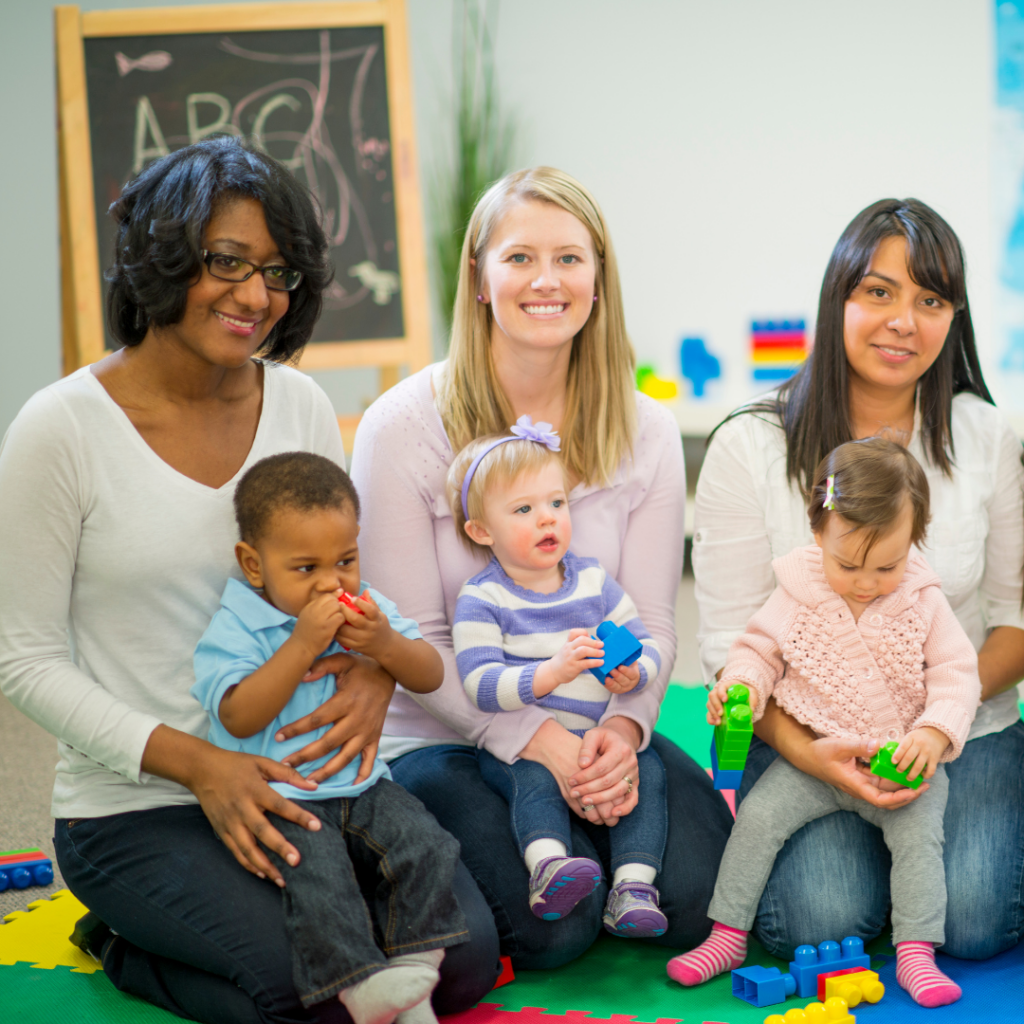Last week, we read about women at opposite ends of the spectrum of age engaging with their neighbors. From teens learning how to care for the sojourner to retired women pouring their lives into caring for the vulnerable, we can all do our part.
Thankfully, the Women of Welcome community, a diverse group of Christian women from all ages and stages of life, provides beautiful examples of how age should never hold anyone back.
Age isn’t the only factor that makes us feel like we can’t be a part of Christlike welcome. Our stage of life, whether single or married, with young or grown children, can feel overwhelming. We can believe we don’t have the experience, the time, or the bandwidth to do more.
What if your current season of life includes parenting young children? You aren’t in your fifties like Carla or retired like Lynee, but deep in the trenches of motherhood.
When Lisa’s family moved to the Pacific Northwest thirteen years ago, they discovered immediate proximity to refugee families. They had natural connections with immigrants and refugees in their community. Her son became best friends with a boy whose family were refugees from Eritrea and he began playing soccer with several refugees and an Unaccompanied Minor from Central America. “The Lord gave us these relationships,” she says.
In November 2021 a friend who is a social worker reached out to Lisa, knowing how she had taken small steps to welcome refugees in the past, and asked her to take a much bigger step. She told her the very first family of evacuees from Afghanistan would be arriving in their area from a military base in just a few days. She asked if her family would help to welcome them.
Lisa knew this would be too big for her family to take on alone, so she reached out to a few people she thought might be on board to help—a couple of people from church, her son’s soccer team, and a retired couple looking for a way to serve the community. She asked them to be the pilot members of a good neighbor team, a group of people to come alongside one arriving family.
“We had the honor and privilege to be the first faces the evacuees from Afghanistan saw upon arriving in the community,” she says. “It was a beautiful story of coming together from the beginning,” Lisa says of the team. “Everyone had different gifts and availability and did what they could.”
Lisa explains: “The gospel response to the refugee is that we come alongside and we welcome and we meet needs just as Christ meets needs. What it has shown me is that it’s not easy. The nitty-gritty is messy; it’s inconvenient. And yet, it is our calling, and there is blessing in that. I have new friends that I wouldn’t have had before. We were simply asked to step into a need, but I can’t imagine my life without them.”
Lisa was able to involve her son, and even his soccer team and their families in welcoming refugees, but what about families with very young children?
Mary and her husband have been opening their home to refugee children as foster parents since their first biological daughter was 11 months old. Mary felt deeply burdened by the stories of thousands upon thousands of unaccompanied youth who fled their homes to come to the U.S. and desperately needed someone to provide shelter, food, respect, and a place to belong for a season.
Even though Mary had fears and questions about what it would be like and how welcoming the youth into her home would impact her baby daughter, she didn’t let them stop her. Six years later, Mary has this to say about becoming a foster parent to unaccompanied minors: “Never once have I regretted becoming a foster parent, but very often do think to myself: I can’t believe I almost missed this. I can’t believe we almost said no. For anything we may have sacrificed along the way (which is not much), we have gained a hundred times over in blessings from these youth. I wish I could make people understand that these youth are a blessing, not a burden–but I think that’s something you learn only after you get close to them. Proximity changes everything.”
Mary’s biological daughters are now ages 3 and 6, and she loves that they hear different languages in their home, see different skin colors, try different foods, and that they are growing up with a culture of biblical hospitality.
For anyone considering becoming a foster parent, especially those with small children, Mary explains: “If you’re single, you can foster. If you rent your home, you can foster. If you’re a retiree, you can foster. But I would especially encourage families with young children to consider this ministry. For one, it’s good for the youth: most unaccompanied refugee youths are 14 and older and have left behind beloved younger siblings. Being in a family-like environment is familiar and healing: the commotion, the laughter, the tears, the toddler tackling you with a hug when you walk in the door after a long day at school. Squishy babies and young children can be powerful vessels of the Lord’s love and comfort, just by being themselves.”

 This resource answers the most common questions Christians have about immigration and equips you to engage conversations with biblical clarity, truth, and grace.
This resource answers the most common questions Christians have about immigration and equips you to engage conversations with biblical clarity, truth, and grace.